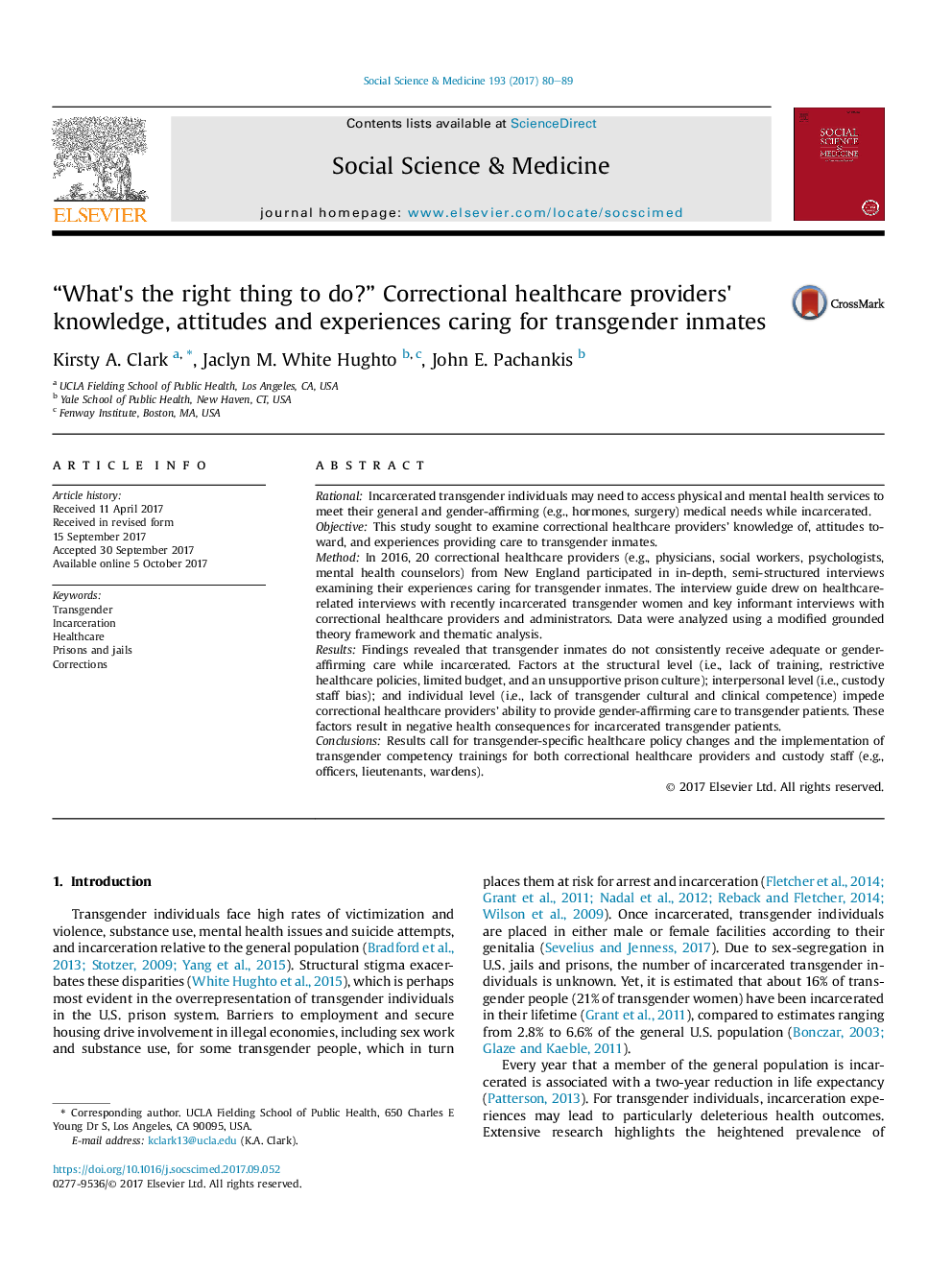| کد مقاله | کد نشریه | سال انتشار | مقاله انگلیسی | نسخه تمام متن |
|---|---|---|---|---|
| 5046350 | 1475976 | 2017 | 10 صفحه PDF | دانلود رایگان |
- The paper tests a conceptual model of healthcare provision to transgender inmates.
- Incarcerated transgender individuals often receive inadequate healthcare in prison.
- Correctional healthcare providers infrequently provide gender-affirming care.
- Transgender-specific healthcare policies in prison are necessary.
- Cultural and clinical competency trainings for healthcare providers are essential.
RationalIncarcerated transgender individuals may need to access physical and mental health services to meet their general and gender-affirming (e.g., hormones, surgery) medical needs while incarcerated.ObjectiveThis study sought to examine correctional healthcare providers' knowledge of, attitudes toward, and experiences providing care to transgender inmates.MethodIn 2016, 20 correctional healthcare providers (e.g., physicians, social workers, psychologists, mental health counselors) from New England participated in in-depth, semi-structured interviews examining their experiences caring for transgender inmates. The interview guide drew on healthcare-related interviews with recently incarcerated transgender women and key informant interviews with correctional healthcare providers and administrators. Data were analyzed using a modified grounded theory framework and thematic analysis.ResultsFindings revealed that transgender inmates do not consistently receive adequate or gender-affirming care while incarcerated. Factors at the structural level (i.e., lack of training, restrictive healthcare policies, limited budget, and an unsupportive prison culture); interpersonal level (i.e., custody staff bias); and individual level (i.e., lack of transgender cultural and clinical competence) impede correctional healthcare providers' ability to provide gender-affirming care to transgender patients. These factors result in negative health consequences for incarcerated transgender patients.ConclusionsResults call for transgender-specific healthcare policy changes and the implementation of transgender competency trainings for both correctional healthcare providers and custody staff (e.g., officers, lieutenants, wardens).
Journal: Social Science & Medicine - Volume 193, November 2017, Pages 80-89
